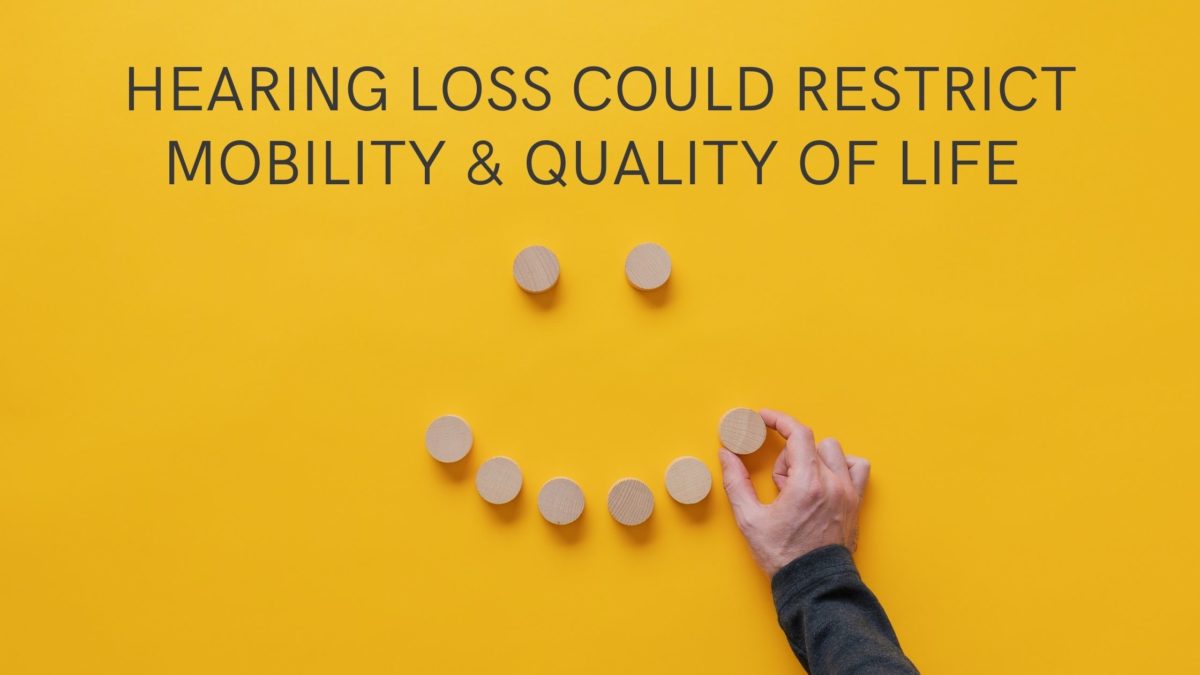- Common Hearing Aid Problems & How to Fix Them - June 14, 2021
- Why People Avoid Treating Hearing Loss — and Why You Should Schedule a Hearing Test! - May 21, 2021
- Common Hearing Aid Problems & How to Fix Them - May 14, 2021
A series of recent studies have led to interesting findings for those who experience hearing loss and choose to avoid treatment.
How hearing loss may limit mobility
Researchers at the University of Jyväskylä and the University of Tampere, both located in Finland, conducted several studies into the consequences of hearing loss.
One of the studies looked at 848 men and women aged 75-90 and focused on how people move within their homes and participate in community activities. After monitoring individuals for two years, it was found that those who experience difficulties with hearing are more than twice as likely than their peers to restrict their movement only to nearby areas and generally have more limited movement.
How restricted mobility caused by hearing loss may impact your quality of life
The studies also indicated that this relative lack of movement could have adverse knock-on effects on a person’s quality of life, including engaging in hobbies and activities. These findings support previous research that suggests that hearing loss can negatively impact a person’s ability to communicate, maintain relationships with loved ones and coworkers.
The studies also point out that the impacts of hearing loss are often specific to an individual. Perhaps surprisingly, the studies indicate that those with a more active, sociable lifestyle are, in fact, more likely to feel the effects of hearing loss.
Hearing loss and relationships
When a person is experiencing hearing loss, it can lead to frustration and anxiety surrounding conversations in noisy environments or difficulties enjoying activities. This can put a strain on relationships, particularly with friends and family.
The good news is that studies have shown a direct link between treating hearing loss through the use of hearing aids and improvement in relationships. In addition, treating hearing loss can also lead to a greater willingness to participate in social activities.
Linking the research together indicates that the use of hearing devices is likely to improve mobility and, therefore, enhance a person’s quality of life overall.
Another way that hearing loss may impact a person’s lifestyle is emotional. Studies have linked untreated hearing loss to depression. Older people with hearing loss are 2.5 times more likely to develop depression than those without hearing loss.
How hearing treatment can help
Wearing hearing aids has many advantages. You achieve more freedom and courage to do more for yourself when you can hear again with the help of a hearing aid. Hearing aids, on the other hand, enable you to hear what others are saying. That means your communication improves, and your relationships improve as a result.
While treating hearing loss through the use of hearing instruments may help, the reality is that only 1 of 5 (or 20%) of Americans who would benefit from hearing devices seek treatment. In addition, the average waiting time between a person’s initial diagnosis and their fitting is ten years!
One of the reasons for this reluctance may simply be that hearing loss is often gradual, and it can take time to realize the impacts fully. This is one of many reasons why the active involvement of loved ones is significant. A recent study showed that involving your significant other in learning about how to communicate could increase overall satisfaction and quality of life.
Staying active is a key to preventing hearing loss
It’s common knowledge that an active lifestyle can help keep people healthy in body, mind, and spirit, but staying active can also help prevent hearing loss.
Considering the findings of the Finnish studies – in particular, that hearing loss can lead to reduced mobility, which in turn can negatively impact the quality of life – it is essential to stay active at all stages of life.
It is evident from this research that confronting hearing loss head-on is the best way to ensure a high standard of living and to promote active engagement in relationships, activities, and the community.
We’re here to help
Our specialists have years of experience helping people tackle their hearing loss through the use of hearing aids. Contact our practice to get started on your path to better hearing!

